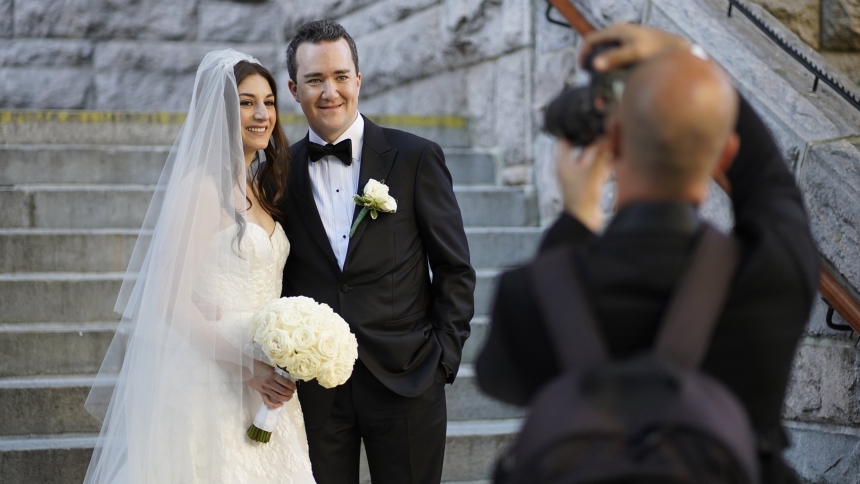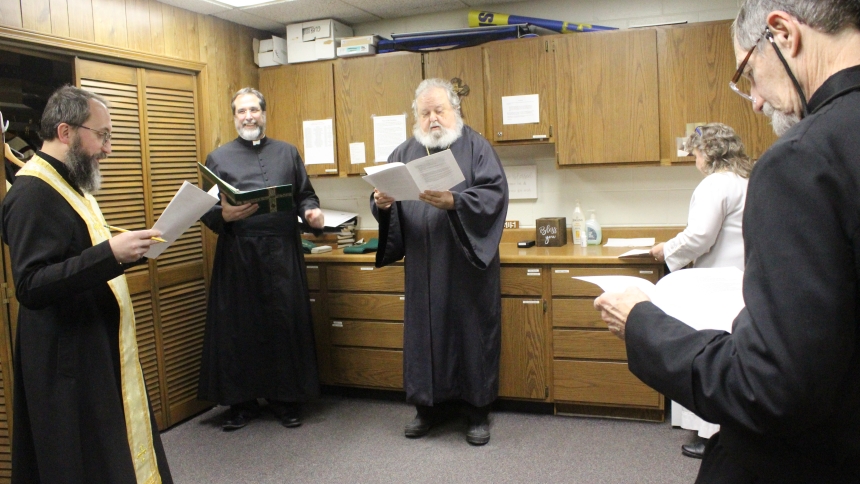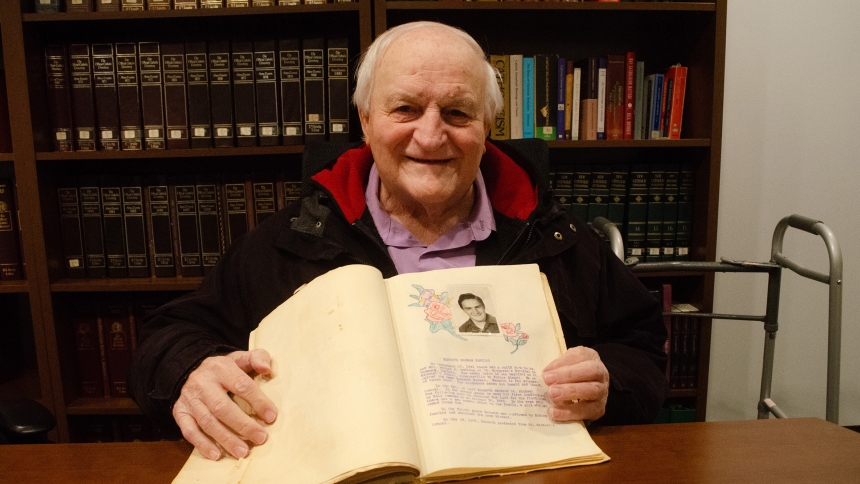
(OSV News) - The great marriage myth of our time is that happy marriages "just happen." When we were first married, we - like many young couples - were under the impression that true love was all that was required to live "happily ever after." We certainly didn't believe that we needed to put any work into our marriage, because only unhappy couples work on their marriages.
Wow - were we wrong.
The images of love and marriage that surround us in popular culture reinforce the idea that real love is easy, and experiencing hardship means you've married the wrong person. The reality is, we are all human beings struggling to find our way through relationships. Successful spouses know that putting time and energy into marriage is essential in building the foundation of a lasting love.
The church teaches that marriage is a sacrament. When a baptized man and a baptized woman freely consent to marry one another, their bond becomes sacramental - that is, it is a living and effective sign of God's love. Christian marriage is more than a signed piece of paper and a shared checking account. Sacramental marriage means that the couple shares together in the life of grace by the very fact of being married to one another.
The church goes even further, teaching that the sign of God's presence in marriage is the couple themselves. While the priest is an essential witness at a Catholic marriage ceremony, the spouses are the true ministers of the sacrament of matrimony. The Catechism of the Catholic Church states, "Christian marriage in its turn becomes an efficacious sign, the sacrament of the covenant of Christ and the Church. Since it signifies and communicates grace, marriage between baptized persons is a true sacrament of the New Covenant" (1617). As spouses, we are called to be signs of God's love and presence through our words and actions, by raising our children in the faith, and through the way we show love for one another.
Christian marriage is a holy vocation in which each spouse is called "to love one another with supernatural, tender, and fruitful love. In the joys of their love and family life he gives them here on earth a foretaste of the wedding feast of the Lamb" (CCC 1642). Married life gives us a glimpse of the eternal union of God and his church and calls each spouse to build the other up for everlasting life in heaven.
Think of the shape of an hourglass. Wide at the top, continually tapering, tight at the middle and flaring out again to its widest point on the other side. That's the shape of a marriage. At times we're far apart, at other times we're as close as we could be. The only thing constant in marriage is change.
In most marriages, there are four main seasons: the honeymoon, young parenthood, middle age and empty nesting, and the later years. Each season or cycle has unique joys and challenges.
- The honeymoon: The heady, early days of romance are like "living on a breath mint," because it seems like it takes almost no effort to keep your marriage happy and healthy. As time goes by, novelty is replaced by familiarity. It's critical to navigate this transition because you want it to breed satisfaction instead of contempt. Falling in love is a wonderful blessing. Staying in love is a choice we make every day (and it takes a lot of work).
- Young parenthood: Children often give a marriage greater meaning and some amazing stuff to post on social media. Kids can be a source of joy and fulfillment. But this phase of marriage is also among the toughest - and it can last two decades or more. So finding joy in one another and your blossoming family is critical.
- Middle age/empty nest: During this phase, your careers are probably flowing well and the house is paid off (or getting closer to it). Now that the kids are grown and gone, you can refocus your time and energy on one another. The world is your oyster - so long as you've taken care to stay connected and interested in one another.
-- The later years: Couples that age together often find a deepening love. Many couples who have been married for 20, 30 or 40 years say that they are even more in love in the later years of marriage than in their early days. This phase of marriage may also be called the "best friend" phase because spouses rely on one another and enjoy spending time together. One couple in their later years summed it up this way: "We simply can't imagine life without each other!"
It is important to foster closeness with your spouse through all cycles of marriage. Parenting often becomes the main connection while the "couple relationship" is no longer prioritized. Spending time together alone as a couple is essential to staying connected.
Date nights may seem trite, but they really do work! If a babysitter isn't forthcoming, turn off your devices and share the news of the day with each other. A friend of ours who was married for more than 40 years says that the secret to a lasting marriage is "to periodically learn something new about your spouse."
Difficult times visit every marriage. Unexpected challenges arise: illness, job loss or death in the family. But that doesn't mean your marriage is doomed - far from it. Even the happiest and most successful marriages you can think of have had troubles - many of them big troubles.
Sacramental marriages work through the tough times. When marital conflicts arise, it is helpful to remember there are no "winners" because you are always on the same team. Being "right" is not so much the goal as being heard and understood. And listening is just as important as talking. It is important to respect your spouse enough to listen and consider his or her side of the conflict. The best marriages are a union of two "forgivers."
Nourishing your faith life together is also essential to a lasting union. Praying together at bedtime and at mealtimes is a great way to keep God at the center of your marriage (and serves as a faith model for children and friends as well).
It is a great gift to journey through life together as a married couple. There will be "ups and downs," and as you move through the many phases of married life, it is most important to remember that you're not alone. The church is there for your marriage long after the flowers have faded and the dress no longer fits. In times of joy and in times of trouble, remember that you have an entire faith community that wants your marriage to succeed and is committed to helping you in any way it can. Count your blessings and they will flow.
Heidi and Cory Busse write from Minnesota.
Caption: A bride and groom pose for a photo outside St. Paul the Apostle Church in New York City following their wedding in 2022. (OSV News photo/Gregory A. Shemitz)



